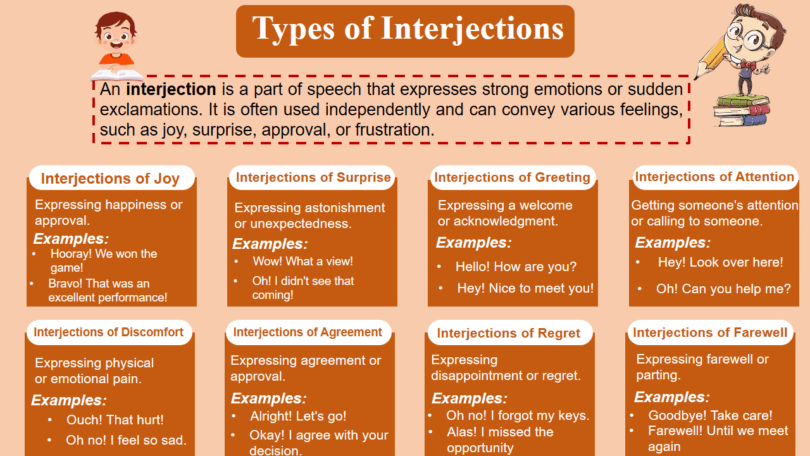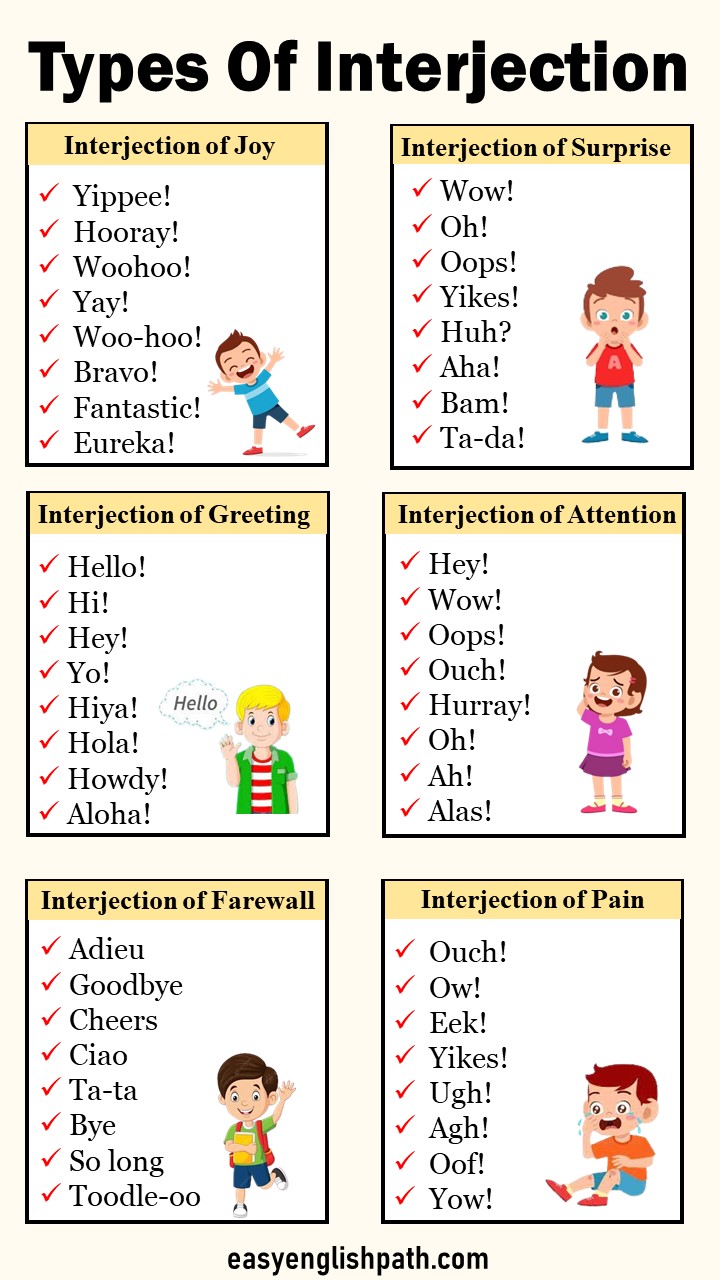interjections are words that are used to add feelings and excitement to our speech. They show emotions like surprise or thinking. For example, when you’re surprised, you might say Wow! And when you’re thinking, you might say Hmm. These words can make our conversations interesting.
What is Interjection?
An interjection is words that is used to express our emotions and strong feelings. It can stand alone to give a complete meaning.
Cognitive Interjection:
Cognitive Interjection are words or phrases that are used to express our sudden or strong emotions and these words are often used independently of a sentence.
- Wow! That magic trick was amazing!
- Oh no! I left my keys at home.
- Yikes! The exam is tomorrow, and I haven’t studied.
- Hmm. I wonder what’s for dinner tonight.






